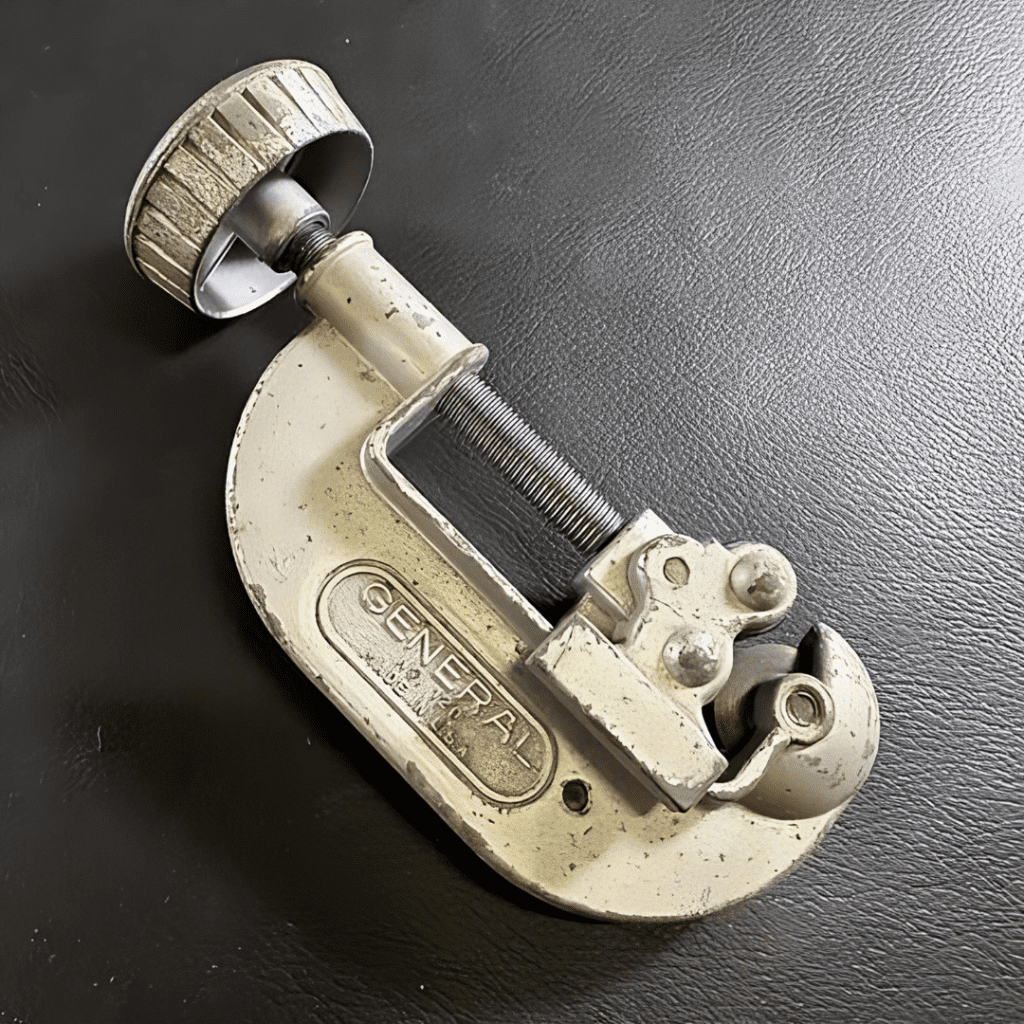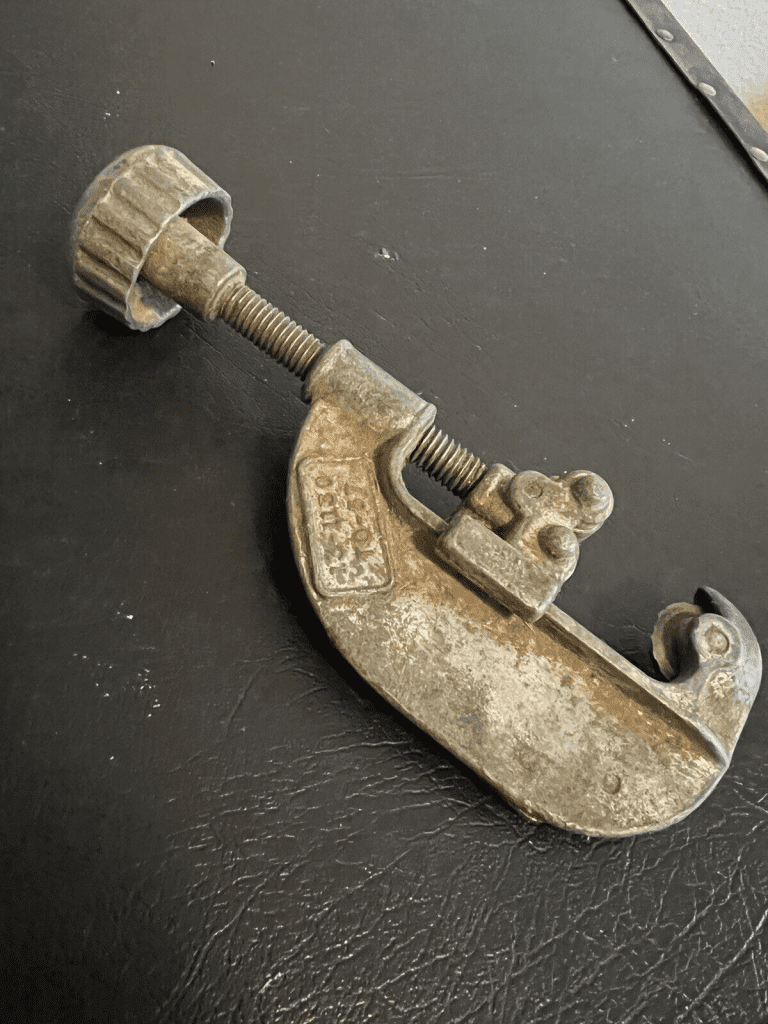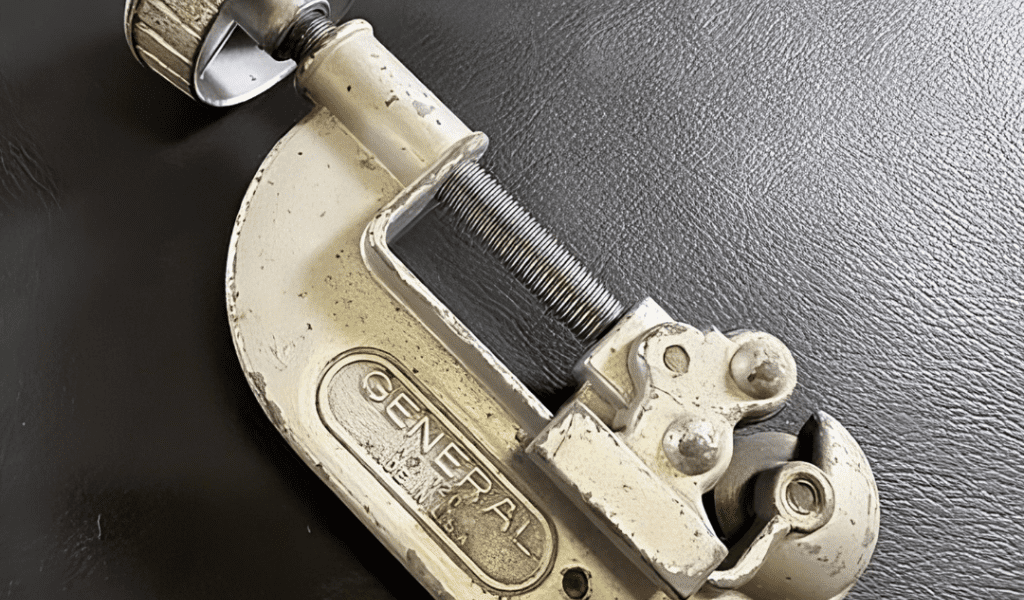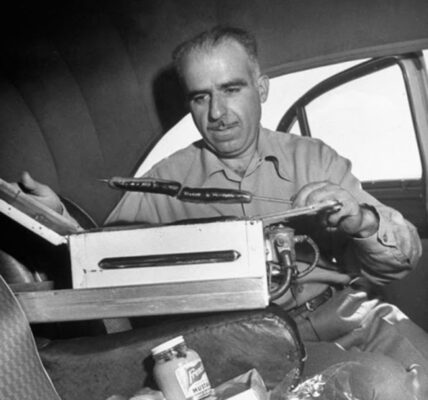The vintage aluminium tubing pipe cutter is more than just a tool—it’s a tangible piece of mid-20th-century industrial ingenuity. Born from an era defined by skilled craftsmanship, practicality, and durability, this tool has earned its place as a classic in both plumbing and metalworking industries. Its lightweight design, efficient cutting ability, and corrosion-resistant properties made it an essential tool for professionals and hobbyists alike.
Origins: The Birth of the Aluminium Tubing Pipe Cutter

The story of the vintage aluminium tubing pipe cutter begins in the mid-20th century, a time marked by rapid advancements in plumbing and metalworking technologies. With increased demands for precision and efficiency in metalwork, there was a need for tools that could deliver clean, accurate cuts while being easy to use.
These pipe cutters were designed with simplicity and effectiveness in mind, using aluminium to reduce weight without compromising strength. This made them not only practical but also portable—ideal for workers who needed to move quickly between jobs or across worksites. The aluminium construction also provided a natural resistance to corrosion, ensuring that the tool could withstand harsh conditions and maintain its functionality over time.
How the Aluminium Tubing Pipe Cutter Works
The vintage aluminium tubing pipe cutter stands out for its straightforward yet efficient design. Here’s how it works and why it became an essential tool for metalworkers and plumbers:
- Securing the Pipe: The tool features an adjustable clamp that holds the pipe securely in place. This ensures that the pipe remains stable, allowing for a precise cut every time.
- Rotating Cutting Wheel: As the user rotates the cutter around the pipe, the cutting wheel gradually tightens, making deeper cuts with each turn. This method ensures that the pipe is cut cleanly and evenly.
- Smooth, Burr-Free Cuts: One of the standout features of the vintage cutter is its ability to deliver a smooth, burr-free finish. This was crucial for maintaining the integrity of the piping system, as rough or jagged cuts could lead to leaks or compromised connections.
- Lightweight and Portable: Thanks to its aluminium build, the pipe cutter is lightweight and easy to handle. This makes it a preferred choice for professionals who need a reliable tool that can be used repeatedly without fatigue.
The simple yet effective mechanism of this tool not only facilitated precise cuts but also minimized the effort required, making it an indispensable item in the toolkit of many mid-century tradesmen.
Why the Vintage Aluminium Pipe Cutter Remains Relevant
Despite the evolution of modern cutting tools, the vintage aluminium tubing pipe cutter continues to hold its own in both functionality and appeal. Why is this tool still relevant, even in today’s tech-driven world?
- Durability and Longevity: Built to last, these vintage cutters were designed to withstand heavy use and challenging conditions. Even after decades, many of these tools remain fully operational, proving the effectiveness of their design.
- Simplicity of Use: While modern tools may offer more advanced features, the simplicity of the vintage pipe cutter is hard to beat. Its manual operation requires no electricity, batteries, or special setup, making it a reliable option for quick cuts or on-site jobs.
- Precision in Manual Cuts: The ability to produce clean, burr-free cuts is still one of its most valuable features. In certain applications, manual control allows for greater precision compared to automated machines, making the vintage pipe cutter an ideal choice for artisans and craftsmen who value hands-on accuracy.
This enduring relevance shows that while technology has advanced, the basic principles of good tool design—functionality, durability, and simplicity—remain unchanged.
Key Features of the Vintage Aluminium Tubing Pipe Cutter

Let’s break down the key features that made the vintage aluminium tubing pipe cutter an industry staple:
- Adjustable Clamp: The adjustable clamp secures pipes of various sizes, providing stability and precision during cutting.
- Rotating Cutting Wheel: The cutting wheel’s design allows it to rotate smoothly around the pipe, ensuring an even cut without exerting too much pressure.
- Lightweight Aluminium Body: The aluminium construction offers both strength and portability, making it easy to transport and handle.
- Corrosion Resistance: Aluminium’s natural resistance to corrosion makes this tool suitable for both indoor and outdoor use, increasing its versatility.
- Ergonomic Design: The tool’s design focuses on ease of use, reducing strain on the user and allowing for longer use without fatigue.
These features not only highlight the tool’s efficiency but also explain why it remains a favored choice among tool enthusiasts and collectors today.
Legacy: The Influence of the Vintage Pipe Cutter on Modern Tools
The legacy of the vintage aluminium tubing pipe cutter is evident in the continued admiration from collectors, craftsmen, and even contemporary tool designers. Despite the rise of more advanced cutting technologies, the core design of these vintage cutters has influenced the development of modern plumbing and metalworking tools. The principles of precision, efficiency, and user-friendliness that defined the vintage cutter still inspire the creation of new tools today.
Collectors view these cutters not only as functional tools but as pieces of industrial history. Many still use them in workshops, while others preserve them as relics of a bygone era, celebrating the ingenuity and craftsmanship of mid-century toolmakers. Their enduring presence in workshops, garages, and collections speaks volumes about their impact and historical significance.
Conclusion: The Enduring Appeal of a Mid-Century Classic
The vintage aluminium tubing pipe cutter isn’t just a tool—it’s a symbol of mid-20th-century craftsmanship, a time when tools were built to last and designed for functionality. From its origins as a practical solution for plumbers and metalworkers to its current status as a collector’s item, the pipe cutter represents an era when attention to detail and manual skill were paramount.
Its lightweight yet durable design, coupled with its ability to produce precise, burr-free cuts, made it a reliable choice for countless professionals. Today, it stands as a reminder of a simpler time in tool design, when reliability and craftsmanship were at the forefront of engineering.
As we look back on this remarkable tool, it’s clear that the vintage aluminium tubing pipe cutter has earned its place in the pantheon of industrial marvels. Whether admired for its history or appreciated for its utility, it remains a cherished piece of industrial history that continues to inspire.




